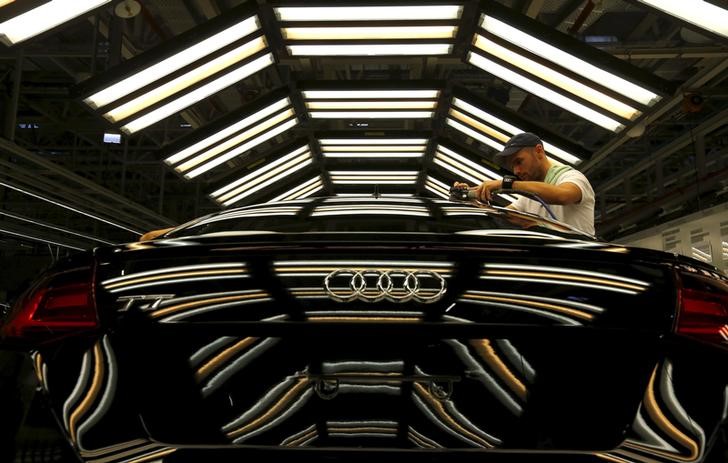BUDAPEST (Reuters) - Workers at the Hungarian plant of German automaker Audi (DE:NSUG) are threatening to strike unless they get a back-dated pay rise, flagging a risk to a sector underpinning economic growth and investment.
Any disruption to the car sector, which accounts for over one-fifth of industrial output and more than a tenth of exports, would spell trouble for Hungary's economy, already expected to slow from last year's 2.9 percent growth rate.
AHFSZ, a trade union at Audi's Hungarian factory in the western town of Gyor, has formed a strike committee and is seeking a 20,000 forint per month wage hike back-dated to Jan. 1, a one-off 100,000 forint bonus and higher employee benefits.
It said the latest round of talks on Tuesday broke down after its strike committee unanimously rejected the two counter proposals put forth by Audi management.
"With the talks continuing, (the committee) has authorised the leadership of the union to prepare and organise the details of a possible strike," it said in a statement published on its website.
The body says it has gathered signatures from over 7,000 workers in support of its demands.
Audi employed 11,411 people at the end of last year at what it says is the world's biggest engine factory in Gyor. An Audi spokeswoman could not comment immediately.
Car sector workers earned a gross 283,936 forints (713 pounds) per month on average last year according to official statistics, above the national average of 247,800 forints.
The local car sector employs over 100,000 people and the problems at Audi highlight a wider problem for Hungary's economy, which has been losing workers through to migration to western Europe and elsewhere.
"There has not been a strike situation in the Hungarian private sector for years and now it all comes to a head at once because so many things have piled up," said Zoltan Laszlo, vice chairman at the Hungarian Metalworkers' Federation.
He said the body was aware of workers at five other companies, mostly in the car sector and employing about 10,000 people, considering some level of strike action over low wages and general working conditions, such as long working hours.

French retailer Auchan